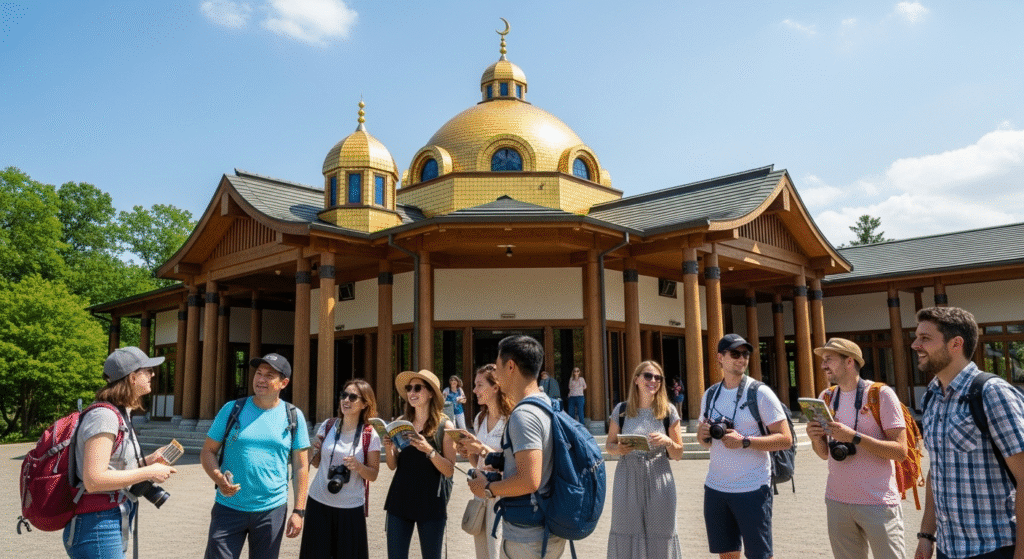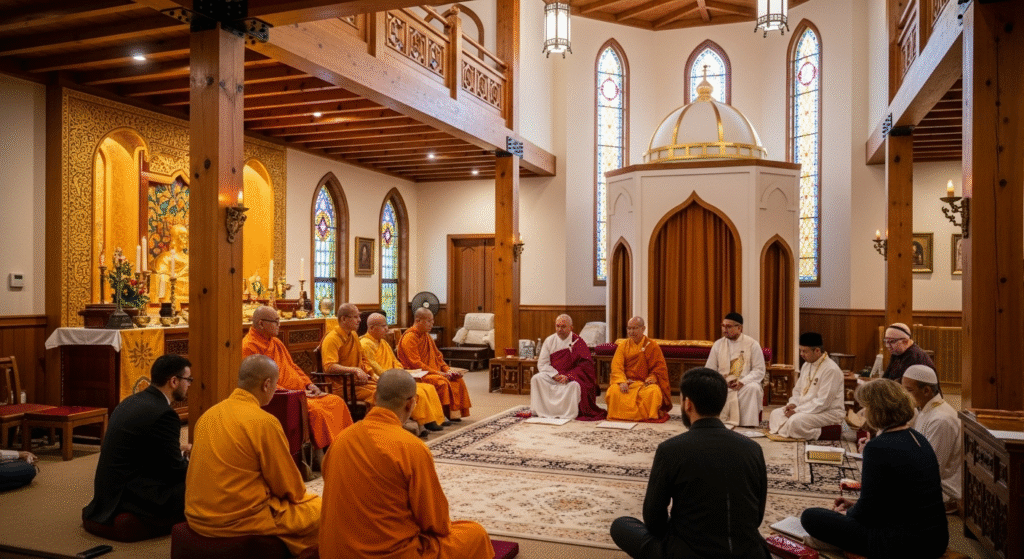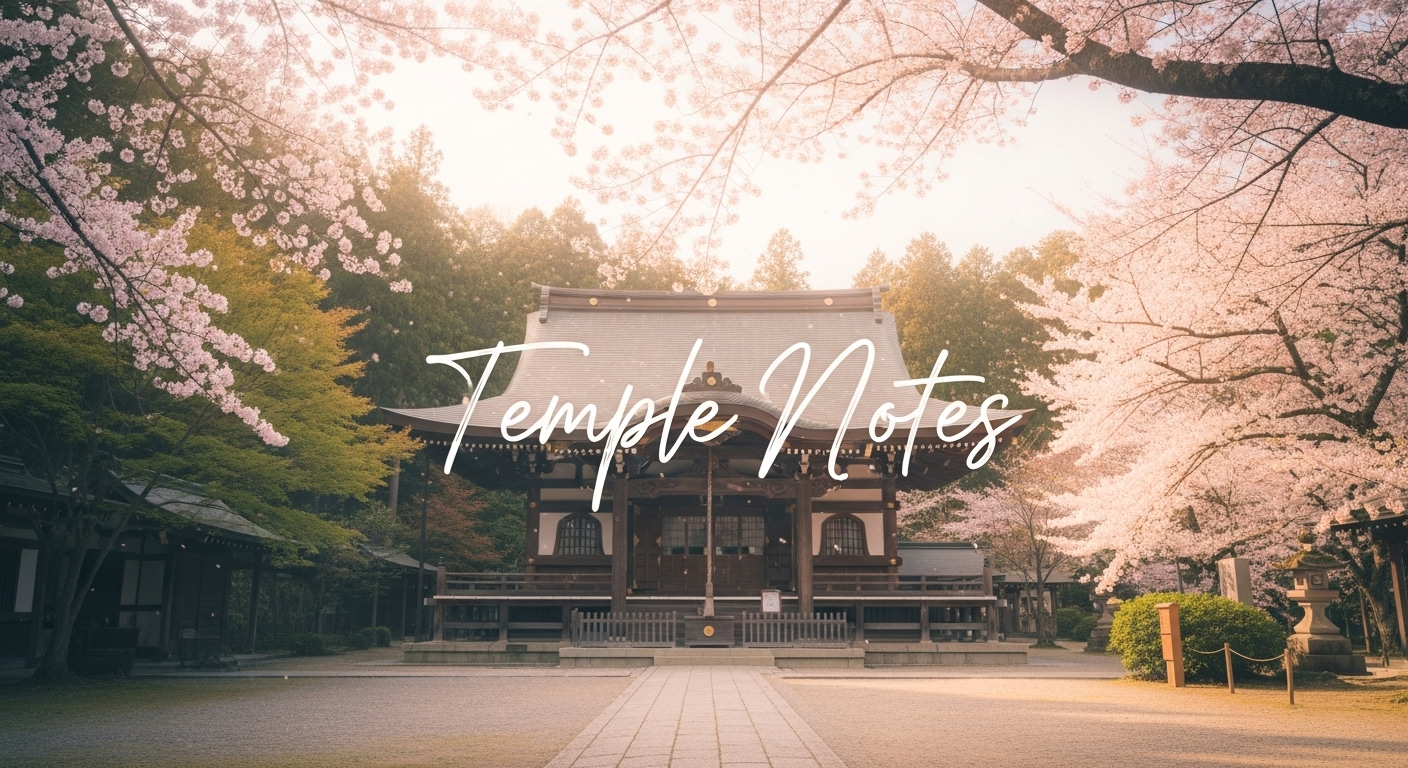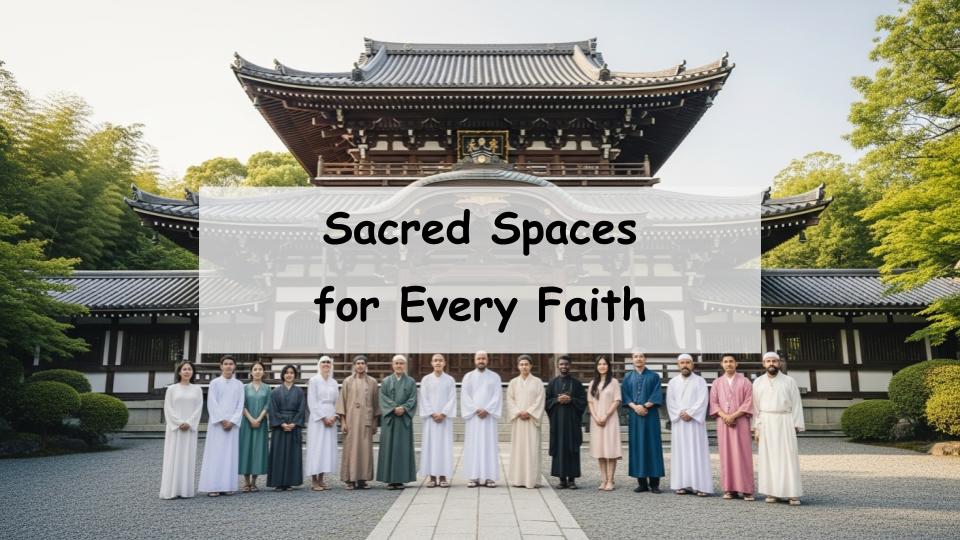As global interest in spiritual diversity and interfaith understanding grows, some Buddhist temples in Japan are opening their doors wider than ever before. Many travelers—regardless of religious background—seek spaces where they can feel welcomed, reflect in peace, and experience authentic culture without the pressure of religious boundaries. This article highlights three temples in Japan that actively promote interfaith harmony, respecting and engaging with major world religions like Christianity and Islam. These temples aren’t just historical landmarks—they’re bridges of understanding across spiritual traditions.
- What Does It Mean for a Temple to Embrace Interfaith Harmony?
- 3 Buddhist Temples in Japan Promoting Interfaith Understanding
- Why Visit a Temple That Embraces Interfaith Ideals?
- Tips for Visiting Interfaith-Friendly Temples
- Conclusion: Sacred Spaces That Build Bridges Between Beliefs
- A Message from the Guide
What Does It Mean for a Temple to Embrace Interfaith Harmony?
The Philosophy Behind Interfaith Openness
Temples that embrace interfaith harmony go beyond traditional Buddhist practices. They actively recognize and respect the diversity of beliefs around them. Rather than focusing on exclusivity, they create welcoming environments where people from different spiritual paths can engage in dialogue, mutual respect, and shared values of peace and compassion.
Japan’s Cultural Openness to Religious Diversity
Historically, Japan has been a land of blended religious traditions, where Buddhism, Shintoism, and Confucian influences have long coexisted. In the modern era, this openness has evolved to include dialogue and cooperation with global religions like Christianity and Islam. Especially in cosmopolitan cities, temples are increasingly becoming venues for interfaith forums, cultural exchanges, and inclusive spiritual experiences.
3 Buddhist Temples in Japan Promoting Interfaith Understanding
1. Tsukiji Hongwanji Temple (Tokyo)
A Blend of Cultures and Faiths
Located in central Tokyo, Tsukiji Hongwanji is instantly recognizable for its striking architecture that blends Indian, Islamic, and Western styles. But its interfaith ethos goes far beyond appearance. The temple regularly hosts multicultural and interfaith events, including music concerts and public talks involving Christian and Muslim speakers. During the holiday season, you might even find Buddhist-Christian collaborative performances, showcasing its inclusive spirit.
2. Engakuji Temple (Kamakura)
A Zen Temple Engaging in Interfaith Dialogue
Engakuji, a prominent Rinzai Zen temple, offers more than just a tranquil meditation space. It frequently invites leaders from other religious traditions—such as Christianity and Islam—for dialogue events and global peace forums. The temple also opens its meditation programs to non-Buddhists, including international visitors seeking spiritual grounding regardless of faith.
3. Zojoji Temple (Tokyo)
A Historic Temple with a Global Vision
Zojoji Temple, deeply rooted in Japan’s Buddhist history as a Jodo-shu temple, is also a forward-looking site of interfaith exchange. It participates in international forums on religious peace and has hosted events where leaders from Buddhism, Christianity, and Islam discuss shared values. Its commitment to peaceful coexistence makes it not just a religious site, but a cultural and ethical beacon.
Why Visit a Temple That Embraces Interfaith Ideals?
A Welcoming Space for Non-Buddhists and Foreign Visitors

One major benefit of visiting these temples is their openness. Even if you’re not a practicing Buddhist, you’ll find that these spaces are designed to welcome people of all beliefs—or none at all. This makes them ideal destinations for international travelers seeking deeper meaning or calm reflection in an unfamiliar land.
A Place to Learn, Reflect, and Connect Across Cultures

These temples are not only spiritual retreats but also platforms for intercultural education. Through events, exhibits, and personal encounters, visitors have the chance to explore the common ground among global faiths and foster a deeper appreciation of cultural diversity.
Tips for Visiting Interfaith-Friendly Temples
Respect Local Etiquette
Even though these temples are open and inclusive, it’s still important to observe basic temple etiquette: remain quiet, dress respectfully, and be mindful of photo policies and sacred areas.
Choose a Temple That Aligns with Your Interests
Some temples emphasize peace forums, others host musical or cultural events. Checking each temple’s calendar or focus can help you choose one that resonates with your personal interests or spiritual curiosity.
Conclusion: Sacred Spaces That Build Bridges Between Beliefs
The interfaith-minded temples of Tsukiji Hongwanji, Engakuji, and Zojoji offer much more than religious sightseeing. They stand as examples of what’s possible when spiritual traditions open their doors to dialogue and respect. Whether you’re a spiritual seeker, a cultural explorer, or simply someone who values peace and inclusivity, these temples invite you to experience Japan’s unique spirit of coexistence.
A Message from the Guide

This kind of initiative is really great, isn’t it?








Comment